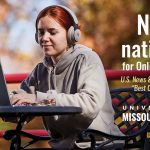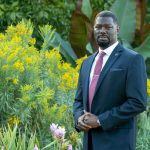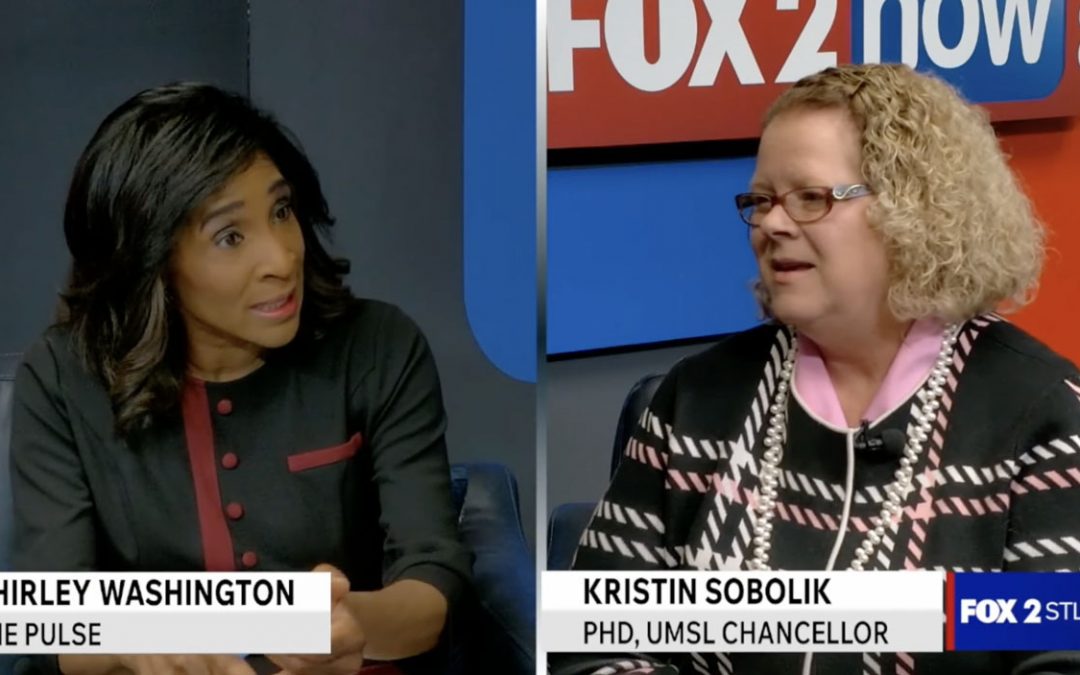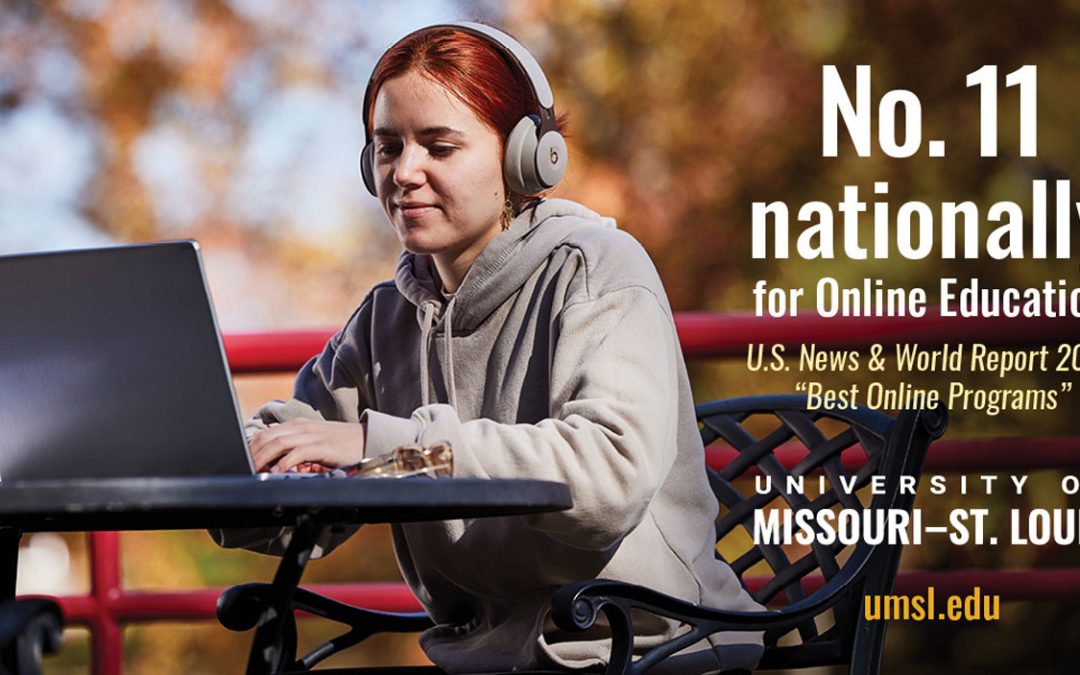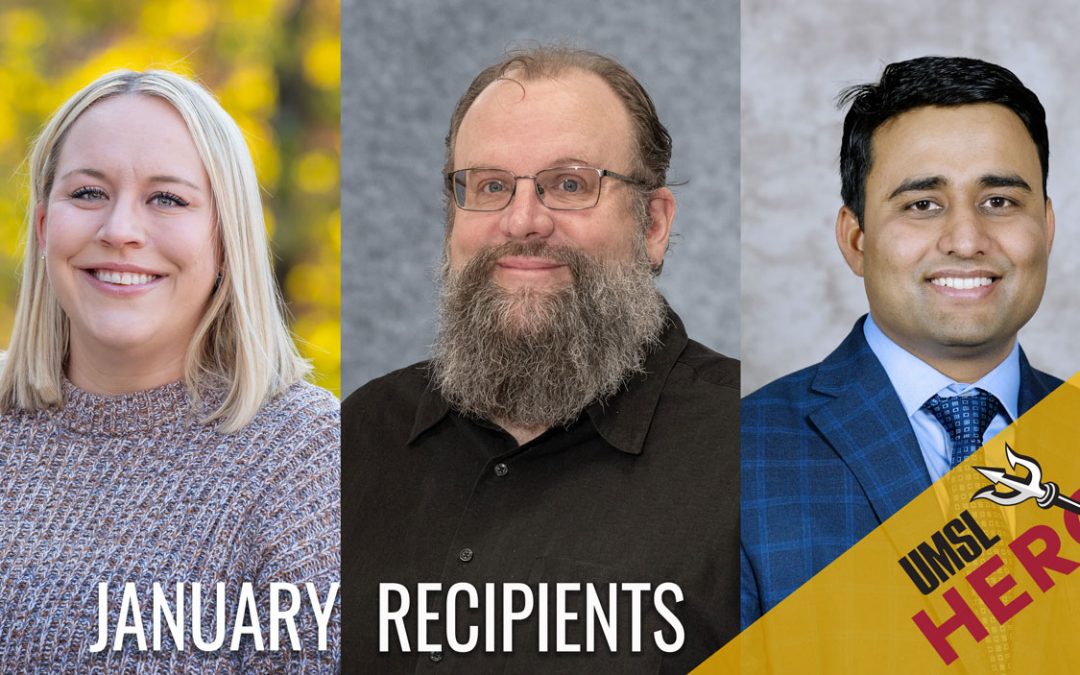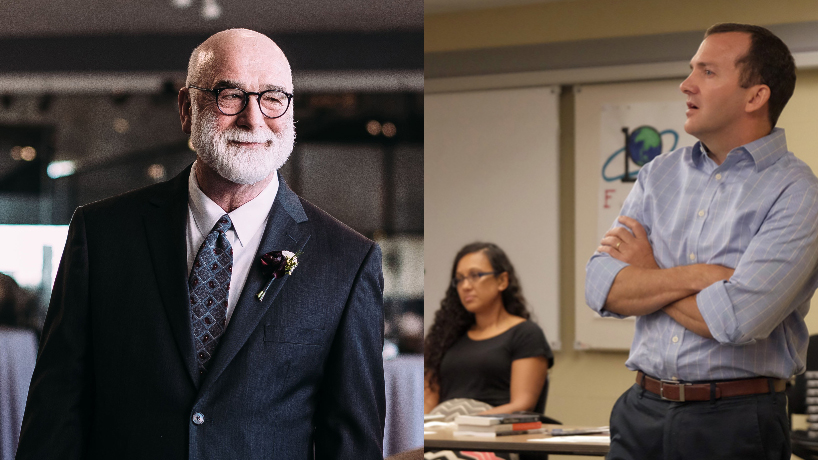
Larry Irons (at left) and Jim Craig, associate teaching professors in the Department of Sociology, penned a St. Louis Post-Dispatch op-ed urging readers to maintain a social lens for viewing the coronavirus crisis and how to respond. (Summitted photo of Irons; Photo of Craig by August Jennewein)
The past week has brought to a halt daily routines as school buildings close, learning and work shift to remote locations and people hunker down in their homes to slow the spread of the novel coronavirus.
It is unsettling to be sure with so much uncertain about the coming weeks and months as we all work to get a handle on the crisis.
Jim Craig and Larry Irons, both associate teaching professors in the Department of Sociology at the University of Missouri–St. Louis, penned an op-ed in Tuesday’s St. Louis Post-Dispatch reminding readers not to ignore the social sciences amid the focus on finding medical solutions to deal with the pandemic.
“No doubt sociologists don’t have all the answers, but in times of severe community distress and personal concern, we are reminded of the value of seeing our world through a social lens,” Craig and Irons wrote. “Sociology can help us ask the right questions.”
They note the way news coverage and day-to-day conversations might refer to government, the stock market or the health care and education systems as singular entities, making it easy to miss all the people making decisions together to guide them.
“As Americans, we live in a culture that emphasizes personal responsibility and opportunities gained through individual efforts,” the op-ed read. “Yet, even that ethos is a learned concept — socialized at a young age and reinforced through countless conversations, observations, rewards and punishments.
“Strong as our individually focused ethos is, we can’t exist apart from others. The tools of sociology help us see outside of our own experience and understand why we react in the ways we do in a social space.”
The current crisis is having a dramatic impact on all of society, but it is not affecting everyone the same.
Older people appear most vulnerable to the most severe symptoms of COVID-19, while parents struggle to work while caring for their children and adolescents adapt to rights of passage that are being interrupted and potentially lost.
There are economic fears, for some stemming from retirement accounts declining in value, for others the more pressing worry of losing their job or keeping their business open.
“Sociology helps us be attentive to inequality,” Craig and Irons wrote. “Rash decisions can exacerbate disparities in power, health, opportunities and more. But thoughtful actions taken with an understanding of the ‘we’ instead of the ‘me’ can address, even improve, some of these conditions. Decisions, like cancelling large events and investing in ubiquitous and free health screening are both medically and socially responsible actions.
“As we move into uncharted waters together, we should move with a social mindset. We will all do better if we remain aware that institutions and societies are human-made. By using a sociological lens today, we can better understand our social space and move together in a positive direction tomorrow.”
Read the full op-ed at St. Louis Post-Dispatch’s website by clicking here.




